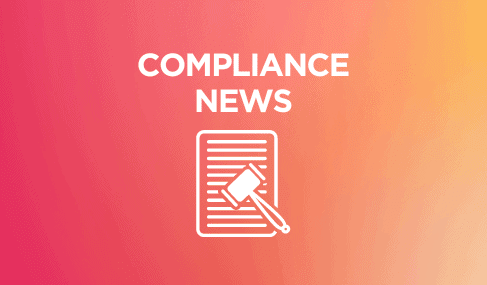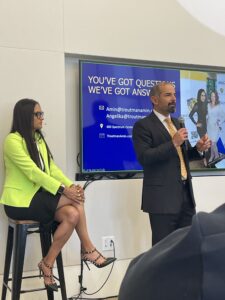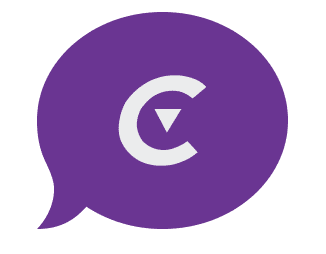
Irvine, California was the place to be last week as Troutman Amin, LLP hosted an all-day TCPA and Marketing Law Conference. Spearheaded by the leading TCPA firm’s principals, Eric J. Troutman and Puja Amin, and sponsored by Convoso and other great brands, the conference’s agenda was chock-full of compliance content. And we’ve got some of the highlights you can’t afford to miss here.
In a day filled with discussions of TCPA compliance updates and all the latest action at the FCC, a few things on the packed schedule stood out.
State “Mini-TCPA” Laws Continue to Multiply: Where to Watch Next
This deep dive session tackled new state regulations, led by Troutman Amin’s Angelika Munger.
A lot of eyes have lately been fixated on moves made at the federal level, but there’s been plenty to keep up with among individual state legislatures, too.
Munger surveyed the national landscape, highlighting the sales and marketing complexity created by a growing patchwork of different laws. Dozens of states now have call restriction times that differ from the federal guidelines, but the differences across the country go much, much further. In particular, Munger highlighted these among those states to watch closely:
- Connecticut: The Constitution State recently passed a slew of changes to its marketing regulations that will go into effect on October 1, 2023. Agents making sales calls will now need to disclose their identity and more information within just 10 seconds of the call’s start and get an affirmative answer from the consumer to continue the call, among many other new restrictions.
- Oklahoma: The OTSA law that went into effect late last year made Oklahoma one of the toughest states for marketers to call into. With its broad definition of an “automated telephone dialing system,” the OTSA has sparked a wave of aggressive litigation from plaintiffs.
- Maryland: Following the lead of Oklahoma (and prior to recent amendments, Florida), Maryland has passed a strict law, the Stop the Spam Call Acts of 2023, which will take effect on January 24, 2024. Like the OTSA, Maryland’s bill limits calls to three per 24-hour period and uses a broad definition of prohibited dialer systems.
During the discussion, Convoso’s CMO Lisa Leight dropped in to talk about Convoso’s unique StateTracker™ solution, which is the only campaign management tool built specifically to support compliance with new state laws impacting outbound contact centers.
What Can Be Done About Out-of-Control Blocking and Labeling?
The Czar of TCPAWorld, Eric Troutman, stepped up to discuss the scourge of call blocking and labeling, which continues to be an issue for sales and lead generation teams everywhere.
Until recently, carriers had no power whatsoever to block call traffic. However, in 2018, the FCC handed that power over, giving carriers the ability to block any calls they deemed spam using “reasonable analytics.” Though carriers initially balked at the idea, after the FCC later provided them with a powerful safe harbor action to shield them from litigation, they eventually began blocking calls—and not just a few of them.
Troutman called this historic period of change a whirlwind. “It’s a hurricane,” he said, “and undoubtedly, there’s collateral damage everywhere. All of us sitting in this room are being injured and hurt and harmed by this.”
Game-Changing Litigation on the Way?
Of course, as Troutman sees it, something has to give with this system. Soon.
“I guarantee you before this year is over, the first litigation against the carriers by people whose calls are being blocked will be filed. And then the pressure will start pushing back carriers.”
And in his mind, there’s no doubt that the carriers’ actions, imposed on them by pressure from the FCC, are illegal.
In the meantime, of course, those making outbound calls need to follow best practices to avoid getting blocked and flagged. In addition to our powerful dialer software that enables smarter outreach strategies, Convoso’s ClearCallerID™ offers teams a comprehensive suite of tools to monitor and manage the health of their numbers, giving them the ability to take action and boost contact rates.
Emerging Trends in AI-related Litigation and Regulation
Closing out the day, Troutman Amin, LLP’s Tori Guidry discussed the field of AI, with an eye toward how it’s being litigated and how it is (and isn’t) being regulated.
Even though OpenAI and Microsoft’s ChatGPT tool has made quite the splash, it’s also currently facing a deluge of lawsuits over its use of personal data and intellectual property like books for training.
With trillions of dollars in potential damages being weighed in the courts, these cases have the potential to not only end ChatGPT as we know out but fundamentally shape the future of AI technology.
Regulation May Be Coming Soon—the Time to Act is Now
Meanwhile, regulatory bodies are taking the first steps toward crafting laws regulating the use of AI. The FTC has issued guidance on the marketing of AI-driven products and its chair has spoken of the need for regulation. Also, the Biden administration has published a blueprint for an AI Bill of Rights.
With regulation clearly coming soon, Guidry and Eric Troutman both encouraged attendees to begin taking action now. Although the exact nature of tomorrow’s laws may be different from the information that’s out there today, these blueprints should inform companies’ AI programs and policies.
“How hard is it to tear down advanced AI models and reconstruct them to conform to this [regulation] after it’s already been running? It’s impossible,” said Troutman. “Do it up front, do it right now. Be ready for the future.”
Be ready for whatever’s next in compliance. Get a recap of the latest contact center compliance news delivered monthly to your inbox. Subscribe here >
DISCLAIMER: The information on this page, and related links, is provided for general education purposes only and is not legal advice. Convoso does not guarantee the accuracy or appropriateness of this information to your situation. You are solely responsible for using Convoso’s services in a legally compliant way and should consult your legal counsel for compliance advice. Any quotes are solely the views of the quoted person and do not necessarily reflect the views or opinions of Convoso.

